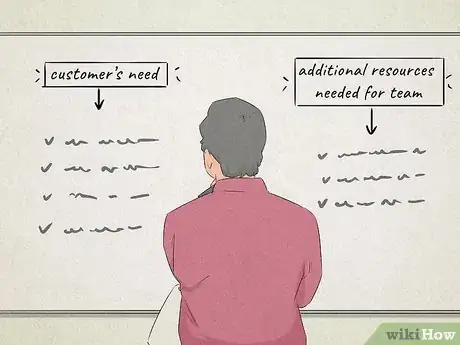This article was co-authored by Guy Reichard and by wikiHow staff writer, Jessica Gibson. Guy Reichard is an Executive Life Coach and the Founder of HeartRich Coaching & Training, a professional life coaching and inner leadership training provider based in Toronto, Ontario, Canada. He works with people to create more meaning, purpose, well-being, and fulfillment in their lives. Guy has over 10 years of personal growth coaching and resilience training experience, helping clients enhance and transform their inner worlds, so they can be a more positive and powerful influence on those they love and lead. He is an Adler Certified Professional Coach (ACPC), and is accredited by the International Coach Federation. He earned a BA in Psychology from York University in 1997 and a Master of Business Administration (MBA) from York University in 2000.
There are 9 references cited in this article, which can be found at the bottom of the page.
This article has been viewed 59,336 times.
Integrity has become a buzzword, but what does it really mean? You have integrity when your actions and words are in line with your values. Simply put, you talk the talk and walk the walk! This is crucial when you're trying to lead—whether it's a team of co-workers, fellow classmates, or your children. By developing self-awareness and treating others with respect, you'll be on your way to effective leadership.
Steps
Expert Q&A
-
QuestionWhat is integrity?
 Guy ReichardGuy Reichard is an Executive Life Coach and the Founder of HeartRich Coaching & Training, a professional life coaching and inner leadership training provider based in Toronto, Ontario, Canada. He works with people to create more meaning, purpose, well-being, and fulfillment in their lives. Guy has over 10 years of personal growth coaching and resilience training experience, helping clients enhance and transform their inner worlds, so they can be a more positive and powerful influence on those they love and lead. He is an Adler Certified Professional Coach (ACPC), and is accredited by the International Coach Federation. He earned a BA in Psychology from York University in 1997 and a Master of Business Administration (MBA) from York University in 2000.
Guy ReichardGuy Reichard is an Executive Life Coach and the Founder of HeartRich Coaching & Training, a professional life coaching and inner leadership training provider based in Toronto, Ontario, Canada. He works with people to create more meaning, purpose, well-being, and fulfillment in their lives. Guy has over 10 years of personal growth coaching and resilience training experience, helping clients enhance and transform their inner worlds, so they can be a more positive and powerful influence on those they love and lead. He is an Adler Certified Professional Coach (ACPC), and is accredited by the International Coach Federation. He earned a BA in Psychology from York University in 1997 and a Master of Business Administration (MBA) from York University in 2000.
Executive Life Coach Integrity is a combination of being aligned with one’s values and being consistent in words and actions.
Integrity is a combination of being aligned with one’s values and being consistent in words and actions.
References
- ↑ Guy Reichard. Life Coach. Expert Interview. 26 April 2021.
- ↑ https://www.inc.com/christina-lattimer/5-essential-behaviors-you-need-to-maintain-your-integrity-as-a-leader.html
- ↑ https://www.tecom.marines.mil/Portals/120/Docs/Student%20Materials/CREST%20Manual/RP0103.pdf
- ↑ https://www.businessinsider.com/subtle-things-leaders-with-integrity-do-2014-7
- ↑ https://yali.state.gov/five-ways-to-lead-with-integrity-at-work/
- ↑ https://execed.economist.com/blog/industry-trends/why-integrity-remains-one-top-leadership-attributes
- ↑ https://yali.state.gov/five-ways-to-lead-with-integrity-at-work/
- ↑ https://www.psychologytoday.com/us/blog/insight-is-2020/201504/7-signs-people-integrity
- ↑ https://smith.queensu.ca/insight/file/qsbinsight_whitepaper_leading_with_integrity.pdf








































































